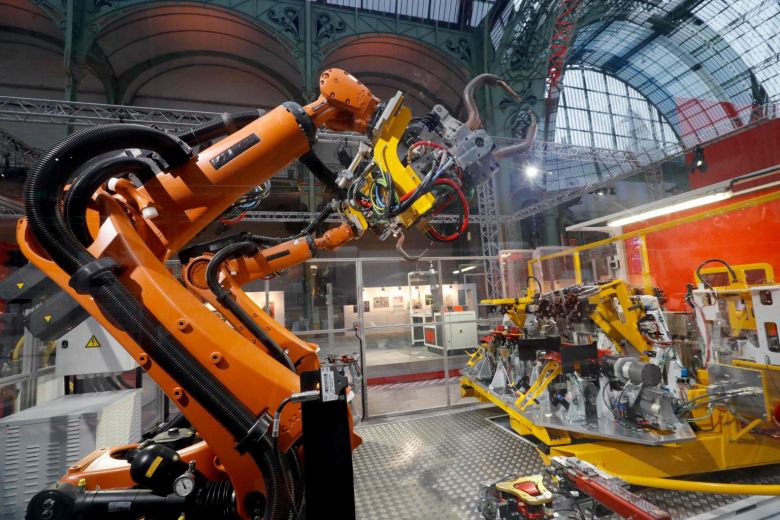Robots are not killing jobs
January 4, 2019 | Expert Insights

The rise of automation has so far had a negligible impact on jobs at a global scale, the World Bank chief economist Pinelopi Koujianou said, despite common gloomy predictions that humans are set to be replaced by machines.
Background
A robot is a machine—especially one programmable by a computer— capable of carrying out a complex series of actions automatically.
Robots have replaced humans in performing repetitive and dangerous tasks which humans prefer not to do, or are unable to do because of size limitations, or which take place in extreme environments such as outer space or the bottom of the sea. There are concerns about the increasing use of robots and their role in society. Robots are blamed for rising technological unemployment as they replace workers in increasing numbers of functions.
Pinelopi Koujianou Goldberg is the Chief Economist of the World Bank Group. She is on public service leave from Yale University, where she is the Elihu Professor of Economics. In 2011 she became the first woman appointed as Editor-in-Chief of the American Economic Review, one of the most prestigious journals in Economics. She was appointed as the Chief Economist of the World Bank Group on April 27, 2018.
Analysis
The World Development Report 2019 is the latest in a series of efforts by academics, consultancies and governments to assess the impact of new technologies on employment. Past studies have often forecast that automation will destroy more jobs than it creates.
While advanced economies have shed industrial jobs over the last two decades, the rise of the same sector in East Asia has more than compensated for the loss, according to an annual report published by the Washington-based international financial institution. "This fear that robots have eliminated jobs - this fear is not supported by the evidence so far," the World Bank's chief economist Pinelopi Koujianou Goldberg said.
In its report, the World Bank instead stressed that the nature of work in the future will evolve. While technological advances in automation are starting to handle thousands of routine tasks and will eliminate many low-skill jobs in advanced economies and developing countries, it is also creating opportunities for different, more productive and more creative jobs.
"This is the fourth industrial revolution, there have been three before, and in each case we managed to survive so it's not the case that machines completely eliminated humans," Professor Koujianou Goldberg said. "Eventually, we will adjust."
While the effects have been negligible on a global scale, the report said the share of industrial employment dropped more than 10 percentage points over the past two decades in countries including Britain, Spain and Singapore, as workers shifted from manufacturing to service jobs. Meanwhile, the share went up in some developing countries, such as Vietnam, where it rose from 9 per cent in 1991 to 25 per cent in 2017.
In the future, workers are more likely to have many jobs over the course of their careers, largely due to the rise of the gig economy, instead of holding down a position with the same employer for decades, according to the World Bank.
Assessment
Our assessment is that robot automation will greatly increase operational efficiency of companies in the coming future while reducing a lot of costs. We believe that robots will replace all repetitive and mundane jobs. We also feel that it is hard to predict accurately all of the jobs that robots and AI will assume from humans and the jobs that new technology will create over the next few decades.








Comments